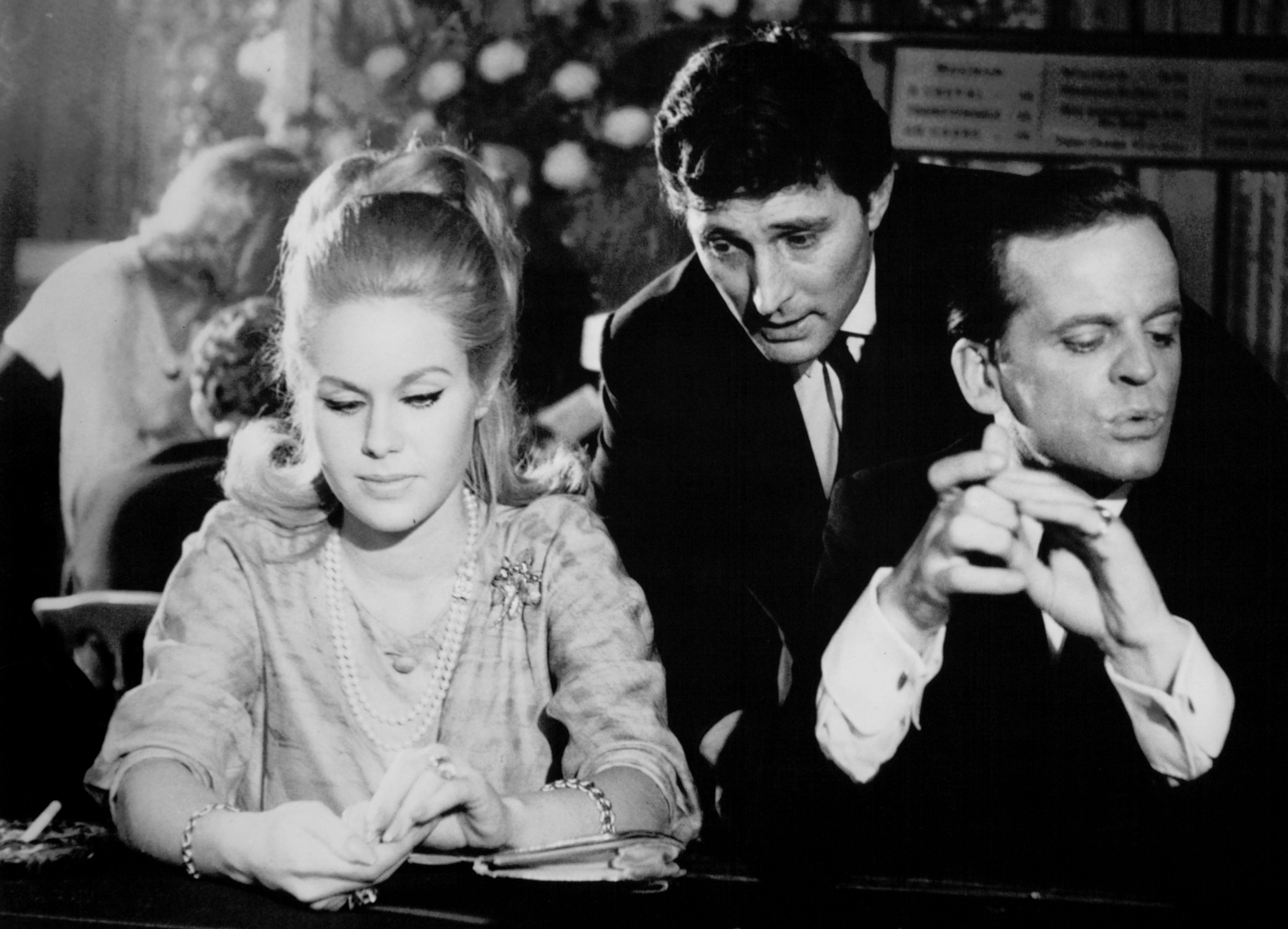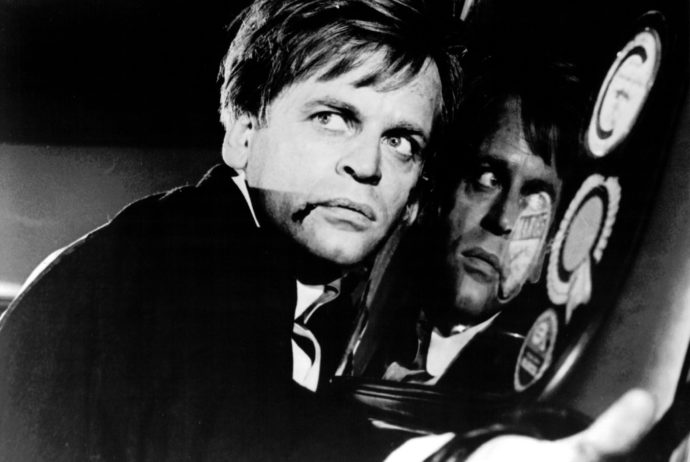Dir: Gerry O’Hara
Star: Francesca Annis, Rosemary Nicols, Ian McShane, Klaus Kinski
I have to say, given a title like that, and a poster which also promises a great deal. this is considerably less salacious than I expected. I mean, with a tagline like “They made love their way… ANY WAY!!!” – capital letters, bold and exclamation points as in the original – you’d be forgiven for expecting something like a London version of Naughty Nympho Night Nurses, or some similar Scandinavian import. But this was perhaps just too early in the swinging sixties to capitalize on the loosening of film censorship which would follow later in the decade. While it doesn’t hang back in covering socially sensitive topics such as sex outside marriage, abortion and homosexuality, the actual depiction is… Well, either “restrained” or “tame” depending on whether your point of view is charitable or critical.
There is an “export version” but according to a comparison, it only runs 67 seconds longer than the British theatrical release. This does include the only actual nudity present in the film, when an artist’s model at a party is shown topless for a few seconds. One of the other additional sequences does involve Kinski, and we’ll get to that a bit later. However, in general this is not anything like the exploitative vehicle I expected. I can’t say how audiences might have reacted at the time, but from a contemporary point of view, it plays more like a soap opera. There is a young, photogenic cast (no ugly people in the swinging sixties!) and multiple plot threads are woven through the 85-minute running time. O’Hara’s script does a deft job of keeping all these balls aloft, and is perhaps the best aspect of the movie.
The central character is Sally (Annis), an upper-middle class girl from Sussex, who moves up to London. There, she joins a house-share with some girls whom she knows, and other new friends. They include Marion (Nichols), who discovers she is pregnant; the token male, Paddy (Tony Tanner); and Dee (Suzanna Leigh), who is the mistress of the house’s landlord and property owner of dubious reputation, Nikko Stalmar (Kinski). Sally, meanwhile, meets and falls for Keith Dexter (McShane), despite initially finding his personality quite off-putting. In some ways, it feels like an early British take on something like Friends, not least in that none of the participants except for Nikko appear to work. A couple of off-hand reference to typing and modelling, is about as close to gainful employment as you’ll get.

Still, this doesn’t deter them from partying, and getting into various scrapes. Most obviously is Marion’s status, at a time when abortion was still not legal in the United Kingdom (that did not happen until 1968). I’m not sure the film even uses the “a” word, couching her situation instead in vague terms, with her boyfriend Prinny knowing somebody who can take care of it. The price for the procedure is given as fifty pounds; for comparison, the rent for the multiple girls in the flat is stated to be fifteen pounds a week. They end up having to sell Maddy’s heirloom jewelry to Nikko to raise the needed money, though Prinny ends up gambling away the proceeds. But this sequence does show Nikko in a sympathetic light. When he discovers the source of the item he just bought, the landlord arranges for it quietly to be returned to Marion.
However, despite being nice to his friends, there does appear to be a darker side to Nikko, in his everyday business dealings. Again, it’s more insinuated than clearly stated that he is a slumlord, renting inadequate properties to vulnerable tenants at extortionate prices (though the house in which the girls live seems perfectly nice). This brings him into conflict with some characters who appear to have a beef with his method of business, hired by the tenants to show the property owner the error of his ways. The first encounter comes with Dee in his car, and he only narrowly escapes being beaten-up due to her quick thinking. But that only delays the inevitable, and he is eventually cornered in a car-park to face the music.
It’s part of this sequence which was also excised from the UK release. After being beaten up, he’s tied to the front of a van (pictured, top), and the shirt torn off his back. In the export version, you actually see him being thrashed with a leather belt, while the British print cuts away before that happens. It does have the desired effect, in that Nikko apparently decides to accelerate his plan to get out of the business. Dee stands by him – but there’s an awkward scene when she visits him in the hospital, as his wife shows up, just after Dee has left Nikko’s room. It seems the lovely little future she had planned out for them, may not be quite as imminent as she hoped. It’s another way in which the film is anchored firmly in its era. Again, ending a marriage became easier later in the decade, after the Divorce Reform Act of 1969. [Completing the trifecta of social issues, turns out Paddy is gay, something entirely illegal in England until 1967]
It is, as you can imagine, very much a time capsule, and as such is difficult to relate to. There is not much character development; outside of Nikko, nobody seems particularly changed by their experiences. There’s no sense of escalation outside of his story-line, and the film just peters out, rather than providing a satisfactory sense of closure for its lead characters. I enjoyed Kinski speaking genuine English, rather than being dubbed, even if there were moments where his command of the language did seem a bit shaky. But beyond that, and seeing McShane and Annis early on, in what would become significant careers for both, there is not enough here to trigger much of a reaction. I did like the catchy theme song though, an appropriately sixties number performed by The Three Quarters. I may be whistling that for a while.

